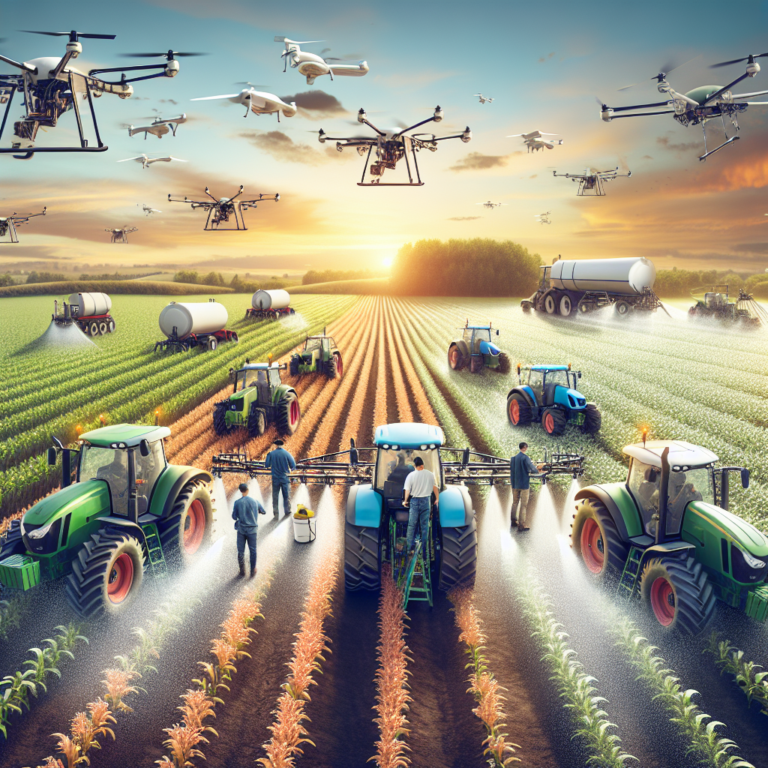Innovative crop protection methods are revolutionizing the agriculture industry, offering new ways to protect crops from pests, diseases, and other threats. These cutting-edge techniques are helping farmers increase their yields, reduce their environmental impact, and improve food safety for consumers.
One of the most important innovations in crop protection is the development of genetically modified crops that are resistant to pests and diseases. Scientists have been able to identify specific genes that can provide resistance to common crop threats, such as insects, fungi, and viruses, and insert these genes into crop plants to help them defend themselves. This technology has been widely adopted by farmers around the world, as it allows them to reduce their use of chemical pesticides and increase their crop yields.
Another important innovation in crop protection is the use of precision agriculture techniques, such as drones, satellites, and sensors, to monitor crops and identify potential threats before they become a problem. These technologies allow farmers to pinpoint areas of their fields that need attention and apply treatments only where they are needed, reducing the overall amount of pesticides and fertilizers that are used.
Biological control methods are also playing a key role in revolutionizing crop protection. Instead of relying on chemicals to kill pests, farmers are now using natural enemies, such as ladybugs, parasitic wasps, and nematodes, to control pest populations in a more sustainable way. By introducing these beneficial organisms into their fields, farmers can reduce the need for chemical pesticides and promote a healthier balance in their ecosystems.
In addition to these new technologies, there are also traditional methods of crop protection that are being re-evaluated and improved. For example, crop rotation, intercropping, and cover cropping are all practices that farmers have used for centuries to protect their crops and improve soil health. By incorporating these techniques into modern farming systems, farmers can reduce their reliance on chemical inputs and build resilient, sustainable farming operations.
Overall, innovative crop protection methods are transforming the agriculture industry, providing farmers with new tools to protect their crops and improve their yields. By embracing these technologies and practices, farmers can reduce their environmental impact, increase their profits, and help feed a growing global population. As the world faces increasing challenges from climate change, pests, and diseases, it is essential that farmers continue to innovate and adapt to ensure the future of agriculture.










